Herbal based nanoparticles as a possible and potential treatment of cancer: a review
Cancer is the greatest cause of mortality worldwide. Various drug classes treat various cancers. Nanoformulations made from natural sources are being studied for treating several diseases, including
[...] Read more.
Cancer is the greatest cause of mortality worldwide. Various drug classes treat various cancers. Nanoformulations made from natural sources are being studied for treating several diseases, including cancer. Surgery, chemotherapy, immunotherapy, and radiation have mostly failed to treat cancer. These drugs may damage quickly dividing healthy tissues, structural anomalies, bodily toxicity, long-term side effects, tumor cell drug resistance, and psychiatric disturbances. Researchers are developing nanoscale medicines using natural medications like Malva sylvestris and Curcumin to lower concentrations and improve target specificity. Nanoparticles’ small size and unique properties make them beneficial. They encapsulate medicinal ingredients, improving solubility, medication release, cellular absorption, and delivery. Nanoparticles may better identify and bind to cancer cells when functionalized with ligands. Natural chemicals and nanotechnology may improve medication availability, distribution, and targeting to cancer cells, making cancer treatments more effective and safe. Nanomedicine, which employs nanoparticles to treat cancer and malignant cells, has grown rapidly because nanodrugs are more effective and have fewer side effects than current commercial cancer drugs. Nanotechnology-based natural chemicals and pharmaceutical delivery methods for cancer therapy are covered in this review article. The paper discusses nanoparticle pros and cons and natural chemicals’ cancer-fighting appeal.
Roshan Yadav ... Tejpal Yadav
View:587
Download:39
Times Cited: 0
Cancer is the greatest cause of mortality worldwide. Various drug classes treat various cancers. Nanoformulations made from natural sources are being studied for treating several diseases, including cancer. Surgery, chemotherapy, immunotherapy, and radiation have mostly failed to treat cancer. These drugs may damage quickly dividing healthy tissues, structural anomalies, bodily toxicity, long-term side effects, tumor cell drug resistance, and psychiatric disturbances. Researchers are developing nanoscale medicines using natural medications like Malva sylvestris and Curcumin to lower concentrations and improve target specificity. Nanoparticles’ small size and unique properties make them beneficial. They encapsulate medicinal ingredients, improving solubility, medication release, cellular absorption, and delivery. Nanoparticles may better identify and bind to cancer cells when functionalized with ligands. Natural chemicals and nanotechnology may improve medication availability, distribution, and targeting to cancer cells, making cancer treatments more effective and safe. Nanomedicine, which employs nanoparticles to treat cancer and malignant cells, has grown rapidly because nanodrugs are more effective and have fewer side effects than current commercial cancer drugs. Nanotechnology-based natural chemicals and pharmaceutical delivery methods for cancer therapy are covered in this review article. The paper discusses nanoparticle pros and cons and natural chemicals’ cancer-fighting appeal.
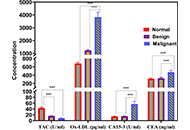 Assessment of lipid peroxidation and total antioxidant capacity in patients with breast cancerOpen AccessOriginal ArticleAim: Breast cancer (BC), a disease in which abnormal breast cells grow out of control and form tumors, is a prevalent life-threatening disease worldwide. Oxidative stress has been implicated in t [...] Read more.Abdullatif Taha Babakr, Mohamed Mahmoud Nour EldeinPublished: January 02, 2025 Explor Target Antitumor Ther. 2025;6:1002284
Assessment of lipid peroxidation and total antioxidant capacity in patients with breast cancerOpen AccessOriginal ArticleAim: Breast cancer (BC), a disease in which abnormal breast cells grow out of control and form tumors, is a prevalent life-threatening disease worldwide. Oxidative stress has been implicated in t [...] Read more.Abdullatif Taha Babakr, Mohamed Mahmoud Nour EldeinPublished: January 02, 2025 Explor Target Antitumor Ther. 2025;6:1002284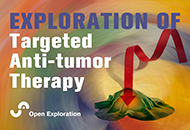 Implications of noncoding RNAs for cancer therapy: Are we aiming at the right targets?Open AccessPerspectiveThe discovery of oncogenes and tumor suppressor genes led to a better understanding of tumorigenesis, and prompted the development of molecularly targeted therapy. Over the past 30 years, many new d [...] Read more.Amil ShahPublished: January 16, 2025 Explor Target Antitumor Ther. 2025;6:1002286
Implications of noncoding RNAs for cancer therapy: Are we aiming at the right targets?Open AccessPerspectiveThe discovery of oncogenes and tumor suppressor genes led to a better understanding of tumorigenesis, and prompted the development of molecularly targeted therapy. Over the past 30 years, many new d [...] Read more.Amil ShahPublished: January 16, 2025 Explor Target Antitumor Ther. 2025;6:1002286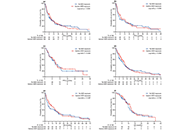 Concomitant exposure to benzodiazepines during pembrolizumab-based therapy for advanced non-small-cell lung cancer: a propensity-score matched analysis of monitoring agency dataOpen AccessOriginal ArticleAim: The interaction of concomitant benzodiazepine (BZD) exposure during immune checkpoint blockade has not been comprehensively investigated to date. This research aimed to determine the influen [...] Read more.Fabrizio Nelli ... Agnese FabbriPublished: January 20, 2025 Explor Target Antitumor Ther. 2025;6:1002287
Concomitant exposure to benzodiazepines during pembrolizumab-based therapy for advanced non-small-cell lung cancer: a propensity-score matched analysis of monitoring agency dataOpen AccessOriginal ArticleAim: The interaction of concomitant benzodiazepine (BZD) exposure during immune checkpoint blockade has not been comprehensively investigated to date. This research aimed to determine the influen [...] Read more.Fabrizio Nelli ... Agnese FabbriPublished: January 20, 2025 Explor Target Antitumor Ther. 2025;6:1002287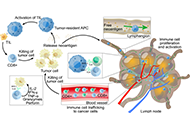 Neoantigen immunotherapy: a novel treatment for bladder cancerOpen AccessReviewBladder cancer is currently the most common malignant tumor of the urinary system. The traditional treatment methods for bladder cancer are mainly surgery, chemotherapy, radiotherapy, and targeted t [...] Read more.Ruiyang Lv ... Xuejian WangPublished: January 26, 2025 Explor Target Antitumor Ther. 2025;6:1002288
Neoantigen immunotherapy: a novel treatment for bladder cancerOpen AccessReviewBladder cancer is currently the most common malignant tumor of the urinary system. The traditional treatment methods for bladder cancer are mainly surgery, chemotherapy, radiotherapy, and targeted t [...] Read more.Ruiyang Lv ... Xuejian WangPublished: January 26, 2025 Explor Target Antitumor Ther. 2025;6:1002288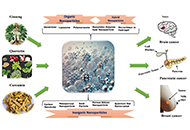 Herbal based nanoparticles as a possible and potential treatment of cancer: a reviewOpen AccessReviewCancer is the greatest cause of mortality worldwide. Various drug classes treat various cancers. Nanoformulations made from natural sources are being studied for treating several diseases, including [...] Read more.Roshan Yadav ... Tejpal YadavPublished: January 03, 2025 Explor Target Antitumor Ther. 2025;6:1002285
Herbal based nanoparticles as a possible and potential treatment of cancer: a reviewOpen AccessReviewCancer is the greatest cause of mortality worldwide. Various drug classes treat various cancers. Nanoformulations made from natural sources are being studied for treating several diseases, including [...] Read more.Roshan Yadav ... Tejpal YadavPublished: January 03, 2025 Explor Target Antitumor Ther. 2025;6:1002285